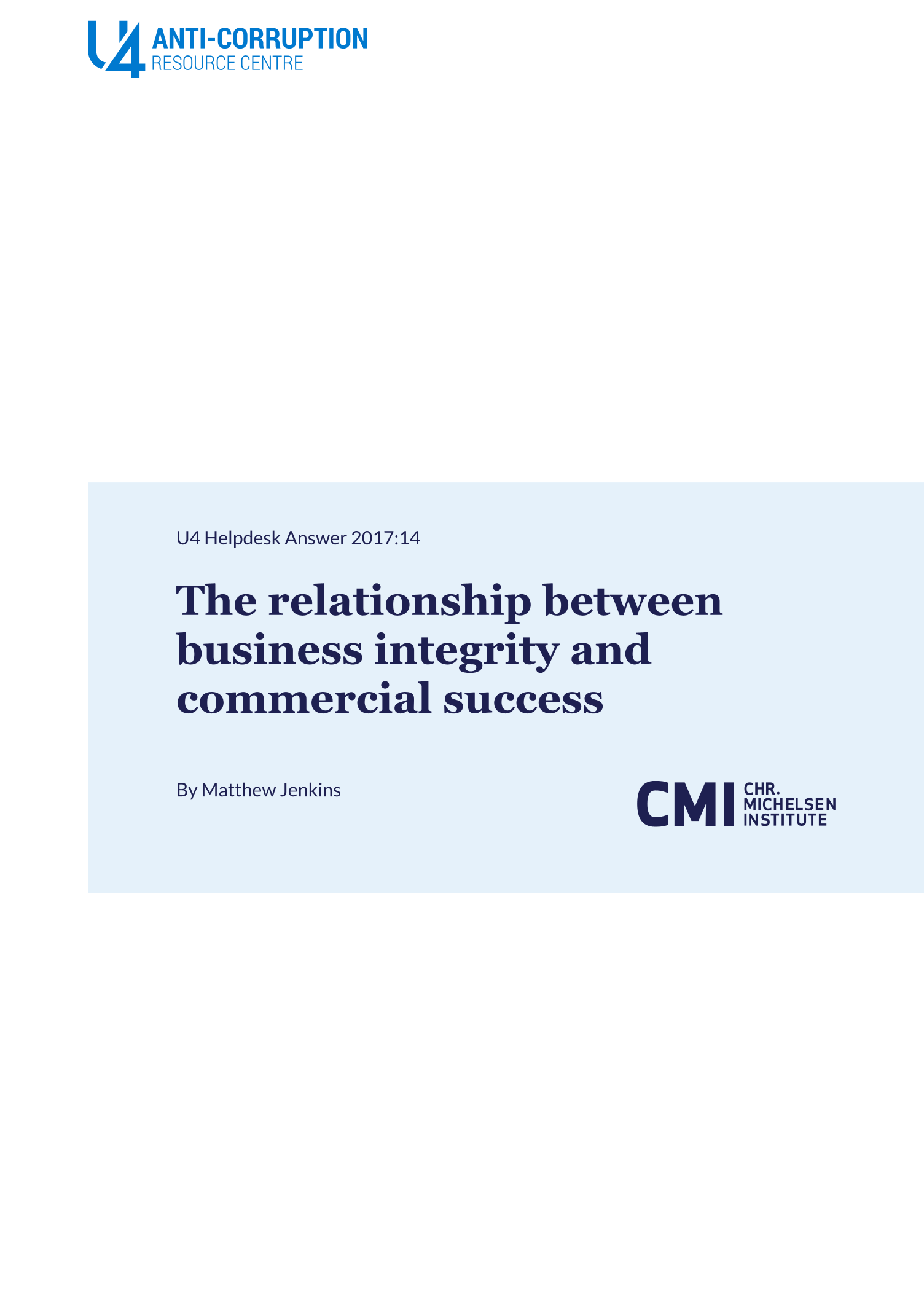U4 Helpdesk Answer
The relationship between business integrity and commercial success
A sizeable and growing body of evidence has provided clear indication that, at the aggregate level, corruption is bad for business: aggregate growth and firm performance is lower in highly corrupt settings, while markets perform poorly when corporate corruption becomes commonplace compared to markets in which firms typically refrain from corrupt behaviour. A newer branch of research has sought to examine the costs and benefits of corporate corruption (typically bribery) for individual firms and demonstrates that, while there may occasionally be some short-term gains, the costs outweigh the benefits in the longer term. The evidence in terms of the costs and benefits of corporate integrity is somewhat sparser. Nonetheless, companies with anti-corruption programmes and strong ethical guidelines are found to suffer up to 50% fewer incidents of corruption than those without such programmes, indicating integrity programmes are an effective means of minimising losses which can be incurred as a result of corruption, especially where it is detected.

Cite this publication
Jenkins, M. 2017. The relationship between business integrity and commercial success . Bergen: U4 Anti-Corruption Resource Centre, Chr. Michelsen Institute (U4 Helpdesk Answer 2017:14)
Disclaimer
All views in this text are the author(s)’, and may differ from the U4 partner agencies’ policies.
This work is licenced under a Creative Commons Attribution-NonCommercial-NoDerivatives 4.0 International licence (CC BY-NC-ND 4.0)


